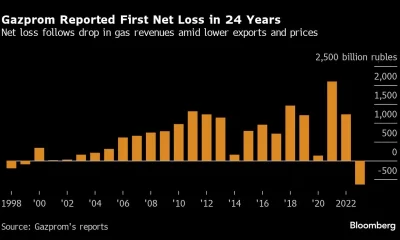Economic Issues
Empty Container Expose Nigeria’s Export Woes -By Taofeeq Adisa Ismaheel
To invest in its people and give them the skills and opportunities they need to succeed. Empty containers don’t Lie, and they are telling Nigeria a story it needs to hear. The country has everything it needs to fill those containers and turn its export woes into wins. it’s just going to take action from all of us to make that happen. So let’s get to work, shall we? Those containers won’t fill themselves.

Ever wonder what happens to those massive shipping containers once they’ve delivered their goods? In Nigeria, too many of them head back to ports around the world empty. And that’s not a good sign for the country’s economy think about it: all those empty steel boxes represent lost opportunity and export revenue that could be fueling growth. Instead, they’re a glaring reminder of the challenges facing Nigerian businesses trying to connect with overseas customers.
The problem comes down to the basics things like poor infrastructure, heavy-handed bureaucracy, and a business environment that discourages entrepreneurship. Solving these deep-rooted issues will take time but empty containers rolling out of Nigeria’s ports today expose the urgency and scale of the problems, while as showing the huge potential benefits if the government and private sector can team up to turn things around the truth is, filling more of those containers may just hold the key to Nigeria’s future prosperity what’s inside or not inside really does matter.
The Problem: 80% of Containers Leaving Nigeria Are Empty
The problem is shocking nearly 80% of containers leaving Nigerian ports are empty. This costs the economy over $1biin annually in lost revenue and highlights deeper issues with non-oil exports.
Exporters face high costs, limited infrastructure, and bureaucracy that stifle trade. The process to ship goods is tedious, requiring excessive paperwork and fees at multiple government agencies. Once cleared, goods face delays accessing scarce dock space and equipment to load ships. These inefficiencies and added expenses squeeze already tight profit margins, discouraging exporters.
Producers also struggle accessing finance to fund operations and trade. Local banks see exporters as risky, charging high interest rates if they end at all. This limits firms’ ability to produce at scale for export, upgrade technology, and meet world class standards.
There are additional obstacles like poor road and rail networks limiting connections between producers and ports. Power outages frequently disrupt manufacturing and storage of perishable goods corruption and “facilitation payments” add another tax.
With oil production declining, Nigeria must take action to diversify its economy through competitive non-oil exports streamlining processes, investing in infrastructure, providing trade finance, and addressing corruption can make exporting easier and more profitable exporters and producers also must boost quality and marketing to reach new customers.
Everyone has a role to pay to fill more containers departing Nigeria. Traders and farmers can focus on high value crops and goods with export potential. Policy makers can incentivize value added production and ease restrictions on trade financial institutions can develop products for exporters with collaborative action, Nigeria can become a thriving hub for global trade.
Why Containers Leave Nigeria Empty: High Costs and Delays
Why do so many shipping containers leave Nigeria ports empty? High costs, bureaucratic hassles, and delays make exporting goods from Nigeria frustrating and inefficient.
Exorbitant Fees
Between terminal handling charges, container deposits, and traffic/port congestion surcharges, the total cost to ship a container from Nigeria can be $1,500-$5,000, compared t $200-$500 in neighboring countries. These fees significantly cut into companies’ profit margins and make Nigerian goods less competitive globally.
Time Consuming Process
Exporting goods from Nigeria requires dealing with multiple government agencies and inspections at each port, which can take weeks to complete. The time intensive process and frequent delays often mean perishable goods spoil before even leaving port. Companies have to factor long waiting times into their schedules preventing them from quickly filling new orders.
Policy Issues
Government policies like the 2017 ban on certain imports in an effort to boost local manufacturing have had unintended consequences, leaving containers with no goods to transport out of Nigeria. Bureaucracy and lack of coordination between agencies also hamper the export process. Simplifying procedures and increasing efficiency could make it more viable for companies to export goods. With lower costs, streamlined processes, and improved policy, Nigeria’s ports could become bustling hubs of export activity, boosting the economy and creating jobs.
Empty containers leaving for other countries represent missed opportunities that Nigeria sorely needs. Tackling these issues head-on could transform the export landscape and the nation’s economic prospects.
Nigerian Ports Have 75+ Waiting Time Versus 3 In Ghana
The time it takes for goods to clear Nigerian ports is absurdly long. On average, it takes 75 days for cargo to go through the import process in Nigeria versus just 3 days in Neighboring Ghana.
Excessive Bureaucracy and Corruption
The sluggish pace is largely due to excessive bureaucracy, overregulation, and corruption at the ports. Multiple government agencies are involved in the clearance process, and each requires its own set of forms, permits, and bribes.
Clearing agents have to go through a tedious back and forth to get the necessary approvals and stamps for each shipment. Delays also happen when officials insist on 100% physical examination of cargoes, even for goods that pose no security risk. In reality, these “inspections” are often ploys to solicit bribes from traders and agents. According to various reports, Nigerian officials and port workers routinely demand illegal payments to provide services that should be free. This “culture of bribery” contributes significantly t the ng dewing time of goods at the ports.
Impact on Trade
The dysfunctional import system as far-reaching implications for Nigeria’s economy. it increases the cost of doing business, scares away potential investors, and promotes capital flight to other countries with more efficient ports. Traders are forced to factor in high costs for storage, demurrage, and bribes in order to account for delays costs which are eventually passed or to consumers through higher prices of goods. Some importers have resorted to diverting cargoes to ports of neighboring countries, where the clearance process is faster and less cumbersome. The empty containers leaving Nigerian ports are an indictment of the failures in the system, and a reminder of the trade and opportunities the country continues to lose due to bureaucratic red tape and institutionalized corruption in its ports. Serious reform is urgently needed to reduce delays, cut out corruption, and boost Nigeria’s international trade.
Empty Containers Show Nigeria’s Declining Exports
Empty containers leaving Nigeria’s ports are a sign of the countries declining exports and economic struggles.
Empty Containers Show Nigeria’s Declining Exports
When ships arrive in Nigeria’s ports, they unload imported goods and reload empty containers to haul away, a troubling trend that highlight the country’s weakening export market. These vacant steel boxes symbolize Nigeria’s inability to fill them with locally made goods for export, reflecting deeper issues like lack of manufacturing economic mismanagement, and over-reliance on oil. Rather than being filled with cocoa, textiles, or agricultural produce for export, the containers leave empty. this costs Nigeria money and represents lost opportunity. The country’s non-oil exports have dropped significantly, undermining economic diversity and stability. Nigeria’s economy depends heavily on oil, making it vulnerable to price shocks. The government has pushed to diversify exports and strengthen other sectors like manufacturing, but empty containers show these efforts haven’t succeeded. More need to be done to boost production goods, encourage local processing of raw materials, and support exporters. Exporting more manufacture and agricultural goods would create jobs, generate revenue, and help balance Nigeria’s economy. But companies face many obstacles like lack of infrastructure, funding struggles, and cheap imports that undercut local producers. Government policies him to promote non-oil exports, yet empty containers leave ports daily, a visible reminder of Nigeria’s unrealized economic potential, filling more boxes may signal Nigeria’s exports are rebounding and its economy strengthening, representing a shipping container half full rather than half empty.
Solutions to Increase Nigeria’s Exports and Utilization
To increase Nigeria’s exports and better utilize empty containers, several Solutions should be considered:
Diversify exports
Relying primarily on oil exports leaves Nigeria’s economy vulnerable to price Shocks and markets changes. Diversifying into other sectors like agriculture, mining, and manufacturing can boost exports in multiple Industries. For example cocoa and cashews are in high demand globally and Nigeria has ideal climate to increase production.
Improved infrastructure
Unreliable infrastructure like roads, railways, and ports make it difficult to transport goods, leading to empty containers. Upgrading infrastructure will facilitate the movement of exports to ports and make Nigeria in a more attractive trade partner. For instance, revamping rail lines from Kaduna to ports could transform transportation of goods.
Streamline bureaucracy
Nigeria’s complex bureaucracy, corruption, and red tape discourage trade and investment. Simplifying processes like obtaining licenses or clearing goods through customs can promote exports. Implementing transparent policies and anti-corruption measures will build trust in Nigeria’s systems.
Provide incentives
Offering incentives for exporters, especially in target Industries, can stimulate trade. For example, tax breaks, subsidies, or free trade zones exempt from certain regulations. Incentives also attract foreign companies looking to invest in Nigeria.
Improve ease of doing businesses
Making it simpler for companies to do business in Nigeria will boost economic activity and trade. Enforcing contracts, registering property, paying taxes, and trading across borders should be straightforward processes. According to the World Bank, Nigeria ranks 131 out of 190 countries in ease of doing business. Reforms targeting major pain points can have an outsized impact.
With determination and sound policies, Nigeria can strengthen its exports, put its containers to good use, and build a more resilient, prosperous economy. But change starts now and solutions must be bold if empty containers are ever to become a thing of the past.
So there you have it. Empty containers leaving Nigeria is another sad reminder of the country’s inability to take advantage of its natural and human resources. Everyone has Failed here the government, businesses, farmers, manufacturers. No one was able to fill those containers with valuable exports to generate income and growth. Instead, they will head off to places that got their act together, filled with goods to be sold around the world. What’s it going to take for Nigeria to live up to its potential? To produce more, make better goods, and get them to Global markets. To support businesses and help them thrive.
To invest in its people and give them the skills and opportunities they need to succeed. Empty containers don’t Lie, and they are telling Nigeria a story it needs to hear. The country has everything it needs to fill those containers and turn its export woes into wins. it’s just going to take action from all of us to make that happen. So let’s get to work, shall we? Those containers won’t fill themselves.




















